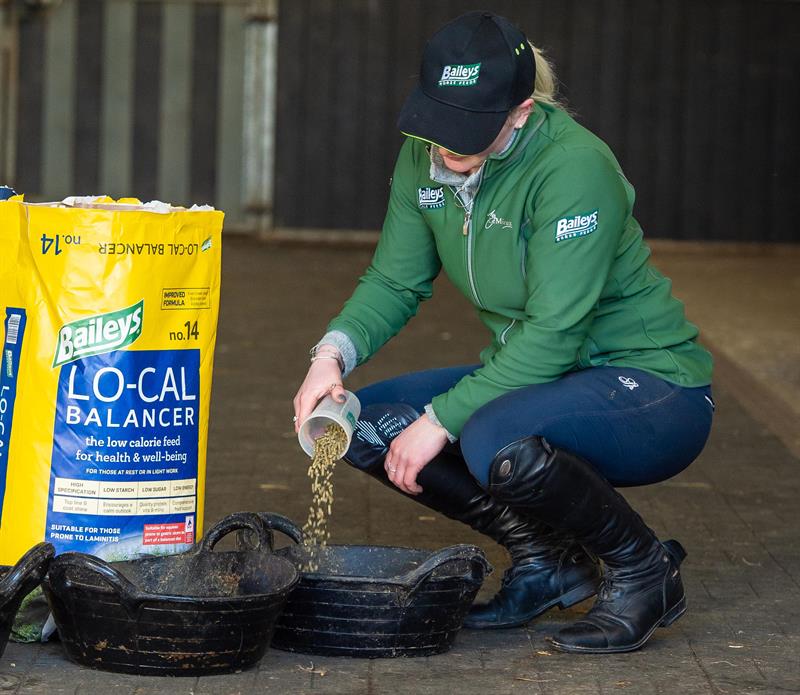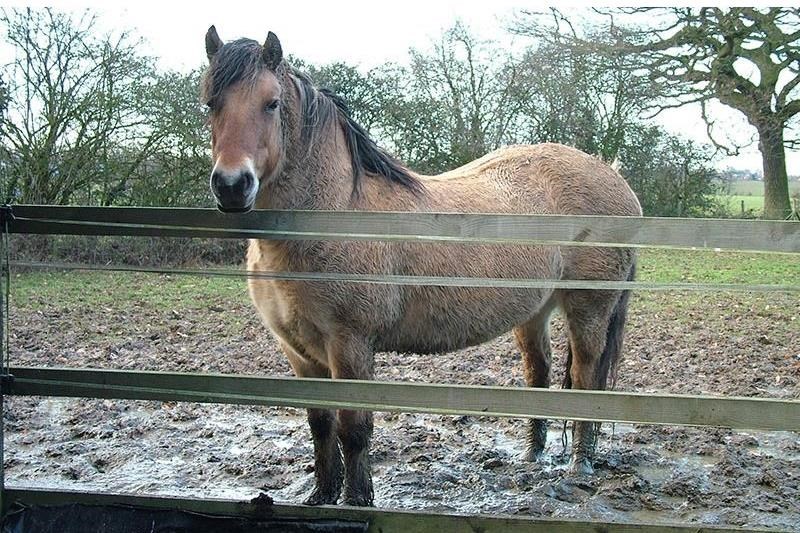Winter is the ideal time to encourage fatties to lose a few pounds. While we’re already looking forward to spring, the weather is still very wintery and there’s still time to encourage weight loss in those that need it.
Objective Scoring
Whilst many of us will be aware of the principle of Body Condition Scoring (BCS), most of us simply use our eye to assess horses’ or ponies’ condition and we’ll all have our own idea of what we are trying to achieve. Body Condition Scoring involves assessing the fat covering of the neck, ribs and rump, both visually and by getting your hands on and feeling things.
At Baileys, we use a BCS system from 1 to 9, where 5 is described as “moderate”, and considered “ideal”, and 9 is described as “extremely fat/obese”. Be honest, if your horse or pony is going into the winter with a BCS of 6 or over, his calorie requirements have been and are being exceeded. That means that he is consuming more than he is burning to stay healthy, keep warm and fuel work.
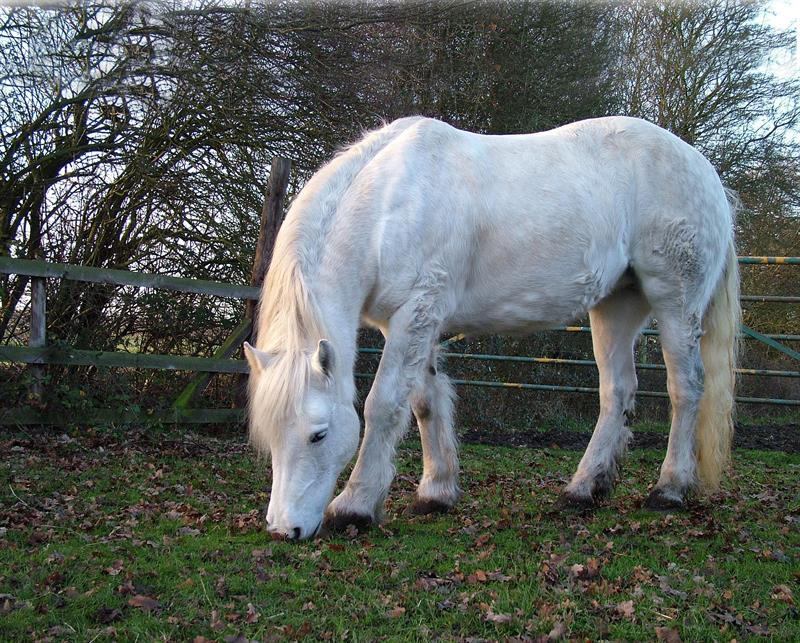
EMS
Whilst it’s normal for horses and ponies, particularly Natives, to be going into winter carrying extra condition, what is often forgotten, is that they are designed to use up those stored energy reserves through the winter months so that they enter the spring considerably slimmer. Problems arise when horses and ponies remain perpetually overweight as the fat deposits produce hormones which cause insulin resistance and a condition now known as Equine Metabolic Syndrome (EMS).
Equines suffering from EMS are at greater risk of laminitis but luckily, on the whole, if they lose the weight, this risk can be greatly reduced. Unfortunately, many equines, are constantly kept in the 6 – 8 range of the 9 point “Henneke” condition score scale, described as “moderately fat” to “fat”, so are clearly at constant risk of EMS and laminitis.
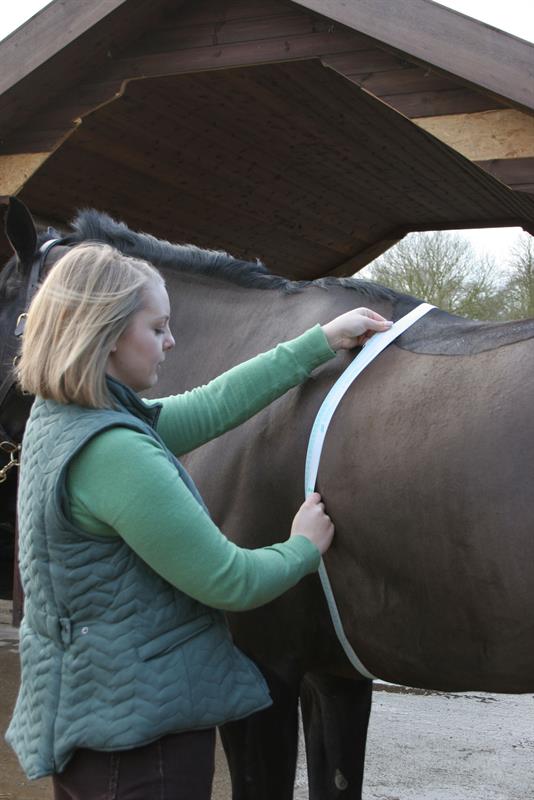
Encourage Weight Loss
These are the ones whose owners should make use of the winter to encourage some weight loss - visit the Baileys web site to download our Body Condition Scoring leaflet and see for yourself where your horse or pony fits on the scale. Rather than leaving these overweight animals to their own devices, feeding and management should be adjusted to ensure they come into spring nearer a BCS of 5.
The colder weather and poorer nutritional quality of grazing should give an advantage as more calories are used by the body to keep warm and fewer should be provided by grass. Let’s not forget that Natives, in particular, are designed to live on next to nothing, however, so here are some practical ways to actively promote weight loss.
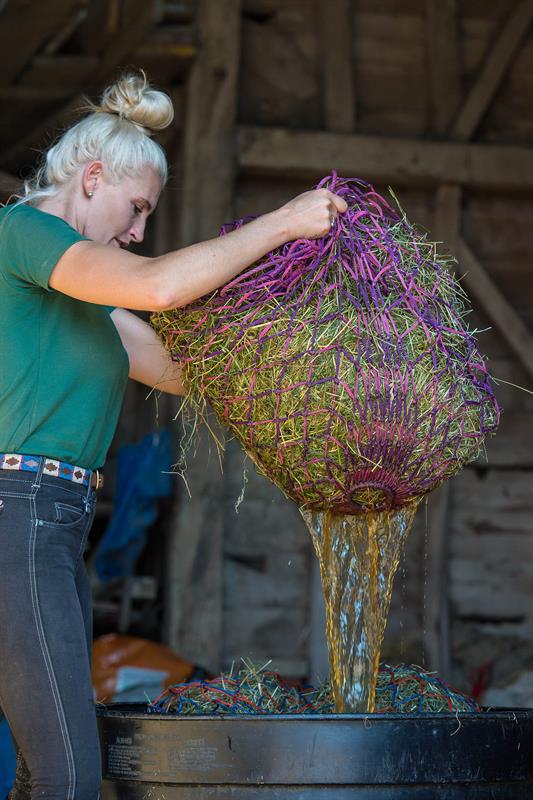
Feeding Tips for Winter Weight Loss
To encourage weight loss, the combination of forage and any hard feed should not weigh more than the equivalent of 1.5% of a horse’s bodyweight. Of this, an absolute minimum of the equivalent of 1% of the horse’s bodyweight should be fibre/forage to help maintain gut health. A weightape can be used alongside body condition scoring to assess and monitor a horse’s bodyweight.
When stabled, preserved forage is the main source of calories. Intake should be controlled by weighing what is fed and using small-holed hay nets to make the daily ration last as long as possible. Whilst calorie intake must be controlled, a horse still needs fibre to chew and to keep his digestive system healthy.
Hay should be soaked for up to 8 to 12 hours, if possible, to wash out soluble carbohydrates (calories) yet leave essential fibre. Steaming helps reduce the spores in hay but has no effect on its calorie content.
Hay or haylage will always be the most cost effective fibre source but Baileys’ low calorie Light Chaff, soaked Speedi-Beet and a few Fibre Plus Nuggets, will add variety, during the winter, as long as they are not over-fed.
Fatties still need essential nutrients for health and well-being so should be fed a low calorie balancer, like Baileys Lo-Cal, alongside forage and/or pasture, to provide quality protein, vitamins and minerals, for muscle tone, metabolism and healthy hooves and skin. Balancers are perfect for providing those nutrients likely to be lacking in a forage-only diet and can be fed as the sole concentrate to good-doers or to top up reduced amounts of hard feed, to keep the diet balanced, without adding extra calories.
Exercise not only burns calories, it keeps the horse mentally and physically healthy. If a horse has limited or no access to turnout, he must have some other form of exercise every day, even if it is only in-hand.
Only lightweight rugs should be used, if any, so the horse or pony has to burn fat reserves to keep warm.
The colder and harder the winter, the more help it will give you in encouraging weight loss in your overweight equine, especially after a long warm autumn with plenty of grass. We’re not talking about reducing them to BCS scores below 4, which would be natural for many living wild, but shifting down a score or two and staying there, would be a healthier situation for many.
01371 850247
